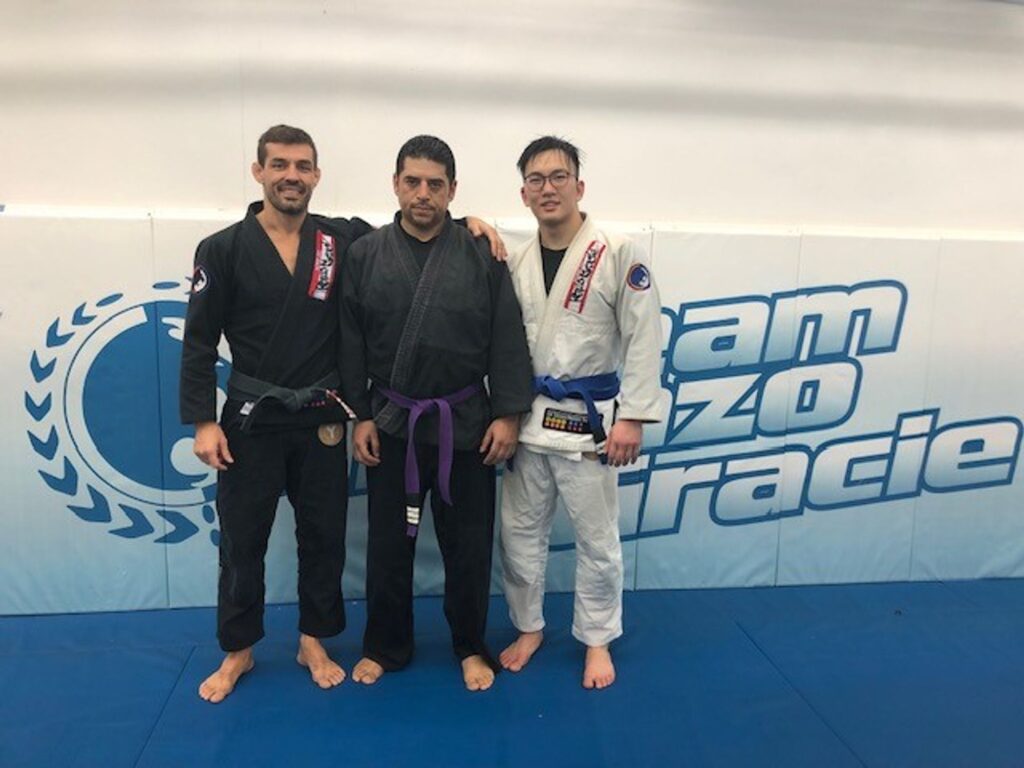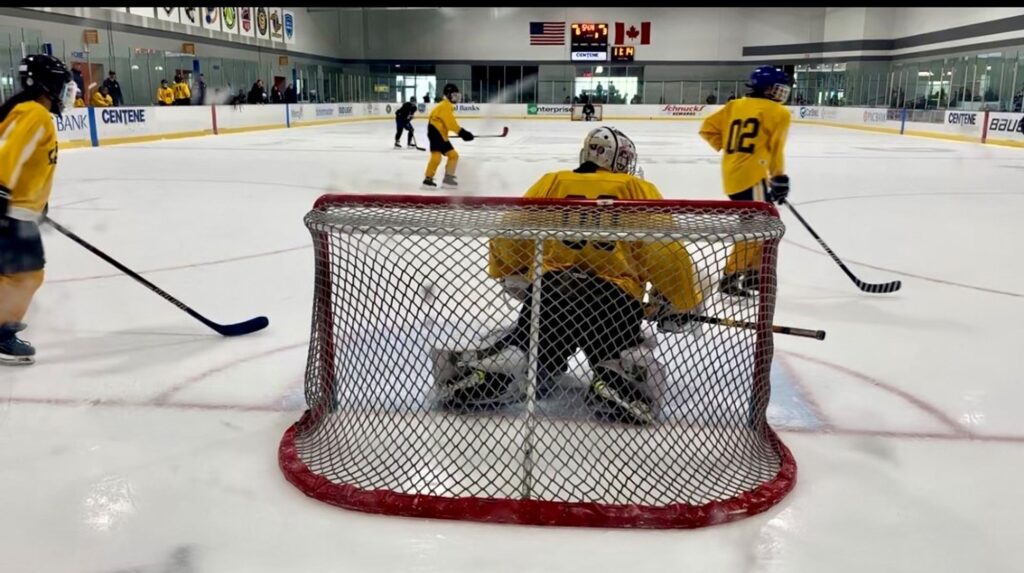Whether it’s martial arts, beep baseball or blind hockey, Alex Barrera believes staying active is key to dealing with vision loss.

There’s hardly a day that Alex Barrera isn’t taking part in some kind of adaptive sport or recreational activity. In fact, one would be hard-pressed to find a sport the 43-year-old visually impaired New York native hasn’t tried at least once.
Depending on the time of year, Barrera can be found on a beep baseball field, hockey rink, hiking trail or in a gym practicing martial arts.
Not bad for someone who didn’t take part in many sports as a kid before vision loss.
“I didn’t really do anything out of the ordinary. (I was) just like any other young individual growing up,” recalled Barrera, who teaches music at a blindness center. “What I did like doing often on my own was riding a bike. That stands out as something I did a lot.”
As he entered his teens, Barrera was diagnosed with a variation of Stargardt disease, a rare eye condition that causes fatty material to build up on the macula, a small area of the retina responsible for sharp, central vision. His vision loss came gradually, and he was able to see fairly well until he reached his 20’s.
“I still have vision. I would be considered a B2 in athletic competition.”
Ironically, it was martial arts training that helped Barrera deal with his vision loss. Although he had been introduced to the sport at a young age, the mental and physical discipline gave him renewed purpose and confidence later on.
“My martial arts discipline has changed over the years. I can say that’s where I got a strong personality to move ahead with the different things life presented in the way of losing my vision.”
Growing up in a New York suburb, Barrera had never come in contact with a blind person until he became visually impaired. He didn’t even form the typical stereotypes blind people encounter, such as having a job, raising a family or traveling. So it came as a surprise when he began experiencing those misconceptions.
The one that disturbs him the most?
“When people see me traveling, they say, ‘you shouldn’t be traveling by yourself’. Some comments are made that can be a little frustrating to deal with, people not showing common courtesy.”
The first adaptive sport Barrera competed in was beep baseball. He began playing for the Long Island Bombers in 2008 and he’s still going strong. Barrera did extensive research online about the sport before going to his first practice, so he picked up on it quickly.
“I was not uncomfortable. I did get somewhat of an understanding of what to expect speaking to an individual that was representing the team at the time, and just doing basic research online.”
Barrera then became involved with InTandem, a New York City nonprofit providing tandem biking for the blind. He has also taken up archery and fishing.

In 2018, Barrera joined New York Metro Blind Hockey and has become almost as passionate about that sport as beep baseball. As a goalkeeper, he was recently invited to train with the U.S. Blind Hockey National Team in Tennessee later this summer. The invitation came as a complete surprise to him.
“I’m excited about that. When I initially joined the team, I really didn’t know much about hockey. I didn’t have any experience ice skating… I was asked if I wanted to be a goalie about a year or two into being part of the team and decided to do that. It worked out for me.”
Barrera is always eager to share his love of adaptive sports with others. He constantly talks to blind and visually impaired individuals about various activities they can try. Not everyone is cut out for competitive sports, but he believes everyone should find something that will enhance their physical and mental health.
“There’s something to do for (every) individual, at least in New York City. There’s over 10 programs at a competitive and recreational level they can get involved with, despite their athleticism or age.”
Several years ago, the Long Island Bombers received an invitation to the Foreseeable Future Foundation’s annual Tribeca Rooftop Gala. That’s when Barrera first became acquainted with FFF CEO Griffin Pinkow. Barrera received a grant in 2021 to cover his transportation fees for blind hockey tournaments.
“If it wasn’t for Foreseeable Future, it would have been difficult for me to attend these tournaments and clinics that are needed to improve my skill level as a hockey player. If it wasn’t for that, I wouldn’t have had the opportunity to learn what I did that particular season.”
For anyone struggling with recent vision loss, Barrera has a simple piece of advice.
“If I can do it, you can do it.”
It’s more than just a catchy motto for Barrera. It’s a lifestyle.
